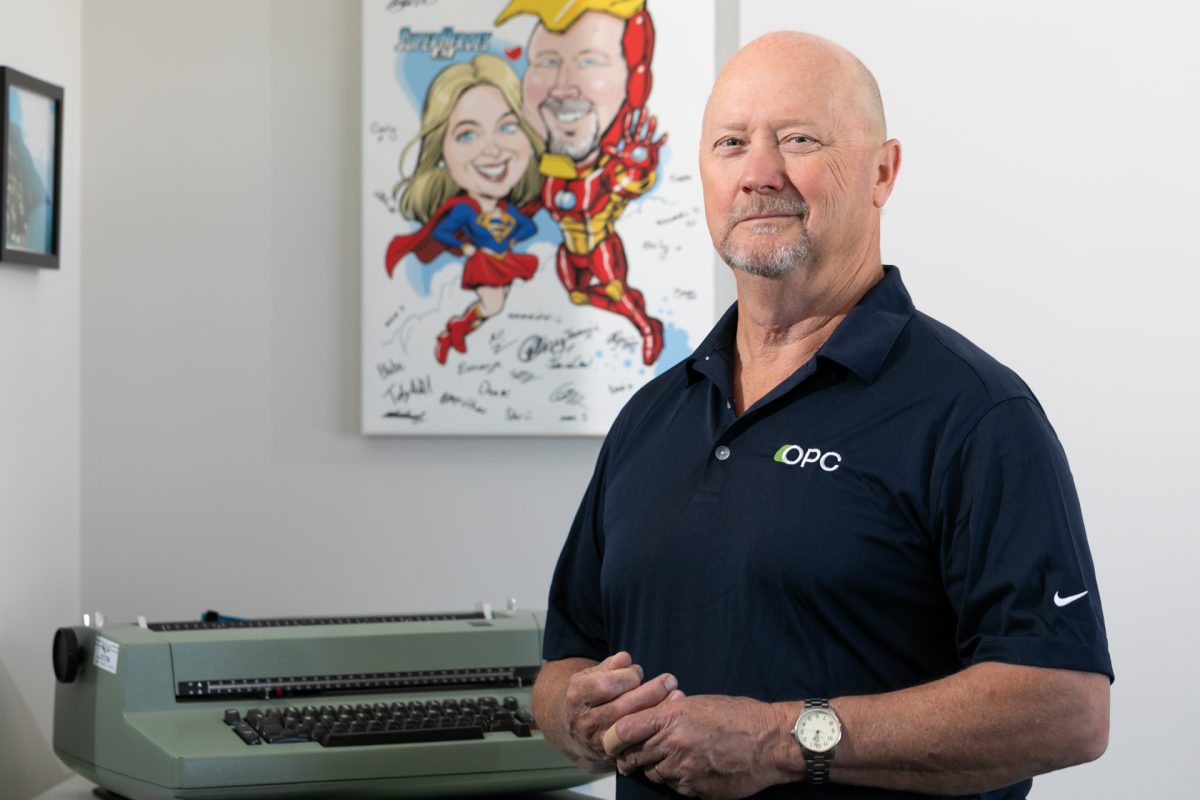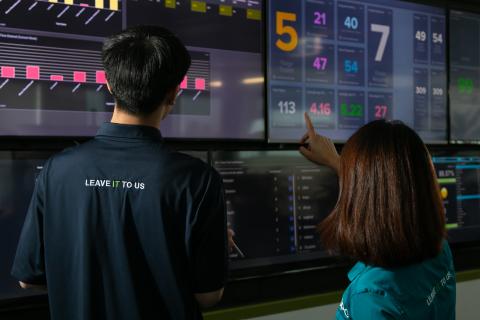From typewriter to AI: a front row reflection on how IT has changed

Brett Norton made his start in the technology industry more than four decades ago. Photo: Michelle Kroll.
In the spring of 1867, Christopher Latham Sholes created the world’s first commercial typewriter. Ultimately redefining written content, his invention laid the foundations for future technology such as word processors, and eventually computers.
More than 150 years later, voice recognition and AI-generated content are fuelling a change in how industries work. Over the last four decades, self proclaimed ‘techie’ Brett Norton has had a front row seat to Australia’s evolution from typewriter to AI.
“I was what they called a customer engineer for IBM back in the day, which was a fancy name for a typewriter technician,” he says.
“I spent six years repairing golf ball typewriters, a few of which I’ve kept for nostalgic reasons. I still think they’re a wonderful piece of machinery.
“There’s a reason they took the working world by storm. Typewriters brought a dramatic boost to efficiency, opened up more jobs for women, improved uniformity and made it possible to produce copies of one document using carbon paper.”
Now managing director of the company he joined in 1985, Brett leads a team of 30 from its office in Fyshwick and has smoothly ridden the waves of one great shift after another.
“We’ve gone from typewriters to computers, luggable mobiles, the introduction of the internet and website development and eventually phones that didn’t need to be plugged in at all. It’s extraordinary stuff.
“And now we come to the next tipping point in technology, the mind blowing AI systems seen today,” he says.
“These are probably some of the most significant changes in history. And this growth is only going to continue, because all modern industries have some level of reliance on technology.”

As cybersecurity continues to be at the forefront of industry concerns, Brett says AI is just one piece of the puzzle and that it pays to invest in contingencies.
“Having ‘lax’ cybersecurity is like playing Russian roulette, eventually you’re going to get caught.
“Do your risk management, have a secondary internet option, back up all data and of course find a trustworthy IT partner, because unless you have a fully dedicated IT support team in house, you can’t go it alone.
“The key is to stay abreast of changes, keep systems up to standard and be proactive rather than scrambling to respond to problems as they appear.”
For more information on using technology safely, especially for personal mobiles and home PCs, Brett recommends OPC’s partner, The Australian Cybersecurity Centre.
Despite the challenges it brings, Brett says the advancement of AI is the most exciting thing he’s witnessed since the internet took the world by storm.
“Some people are worried for their jobs, but I think most roles will simply evolve just like mine has and our company has over nearly 40 years.
“How stressed do you think 19th century scribes were when the typewriter was invented? They survived because skilled workers will always be needed in technology. AI is not a silver bullet for any particular area.
“It’s a resource I use daily, mostly to make research and admin tasks more efficient. If you look at it as a tool rather than a threat, suddenly a whole new realm of possibilities opens up, just like they did for writers in the 1800s.”
